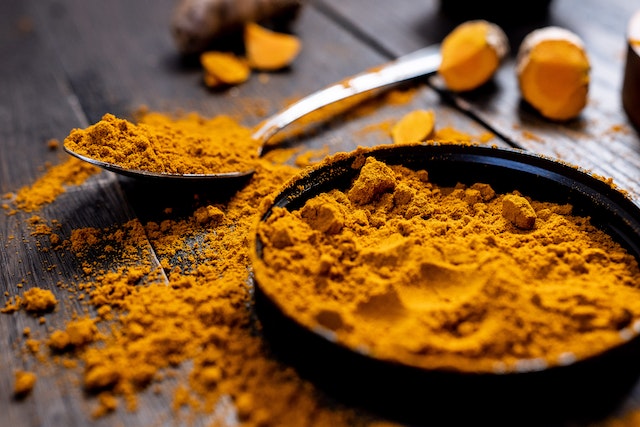The entire world is affected by acne, with teenagers being the most affected group. Acne is the result of excessive stimulation or contamination of the body’s sebaceous glands from either drug reactions, being exposed to germs, or simply the follicles being blocked by some other source. Acne is most prevalent on the face and the back, though it can become a problem almost anywhere on the body. Using turmeric for acne is typically more effective than most pharmaceutical lotions or creams, as the chemicals in these products cause irritation, swelling, and in some cases, simply worsen the acne.
What Makes Turmeric Useful?
Turmeric has only recently entered the world of modern herbal medical science, so its effectiveness and range of uses is still under research. It works generally as a way to destroy fungi and bacteria, both of which are great for fighting acne.
Curcumin, a yellow compound found in large concentrations in turmeric, is what makes turmeric pills for acne one of the best treatments available. It has been tested with animals and humans as an anti-inflammatory agent, an antioxidant, a way to dispel tumors, and many other benefits. It is this anti-inflammation that aids in fighting acne the most, as it will greatly diminish the visibility of acne and remove any discomfort it may cause the individual while the other components work away at healing it.
Taking Turmeric as a Supplement
Since this herb is completely natural and carries a wide range of health benefits, taking a turmeric supplement to treat acne will yield much greater benefits than simply taking a manufactured medication. Turmeric may sometimes be represented in a supplement by curcumin as this is the main ingredient that is used to heal acne and promote health. Piperine is also commonly found as an addition to supplements as it helps the body absorb and use turmeric.
All supplements are different. Some are capsules and contain turmeric powder for acne which can also be used as a topical application. This also allows the usage of turmeric for acne scars. Most supplements of 500 milligrams recommend two to three pills or capsules per-day, though of course each person will also need a different amount.
Topically Applying Turmeric
To make a mask or paste that can be used anywhere on the body, buy some supplements in capsule form and break them open. There are various recipes to create a paste of turmeric for acne, each with different side benefits. For example, mixing sesame oil with the powder may help moisturize the skin. Powder, milk, and honey as a mixture may soften the skin while treating the acne. Keep any mixture refrigerated, as the coolness will both preserve the ingredients and sooth the skin when applied. Always mix and store any facial treatment in a completely clean container; if it becomes contaminated, it could very well worsen your acne!
Certain preparation is recommended before using these pastes. First, take a shower or bath to clean and soften the skin of the area that will be treated. Make sure your skin is moisturized, and do not use antibacterial soap or anything with significant amounts of glycerine. If taking a shower, press a saturated washcloth against any areas you wish to treat for a few minutes. Since the whole body will soak in a bath, this is not necessary. After your shower or bath, pat your skin with a clean towel (do NOT rub it). Make sure it is dry.
To apply the paste, gently massage it onto the afflicted areas with your fingers for several minutes (up to 10). It is best applied at night before bed, as it needs several hours to dry and take effect. The paste will harden into a mask which can then be safely washed off with warm water. It is important to note that this mask WILL turn your skin slightly yellow for about a week, though it is easily covered with a light application of toner.
Cautions for Turmeric
Though fresh turmeric and turmeric pills for acne are some of the best natural treatments available, there are some possible side effects that come with ingesting this herb. They are rare, but nonetheless possible and worth noting. Allergic reactions are also always something to look out for, so if you experience rashes, breathing difficulties, or anything symptom not listed here, be sure to cease using turmeric immediately and consult a doctor.
The most common effects of turmeric are nausea and diarrhea. It may also act as a significant blood thinner, so for anyone with naturally thin blood this could prove quite dangerous. There is also a chance that using the herb topically can yield the opposite effect in some individuals, so it is best to try it on a small, controlled area before applying it as a facial mask. Finally, there is of course the very common effect of yellowing the skin, though this has no health implications.
Turmeric is not recommended for use by pregnant women, as not enough research has been done to verify its safety. There has been some evidence that it may cause miscarriages.
